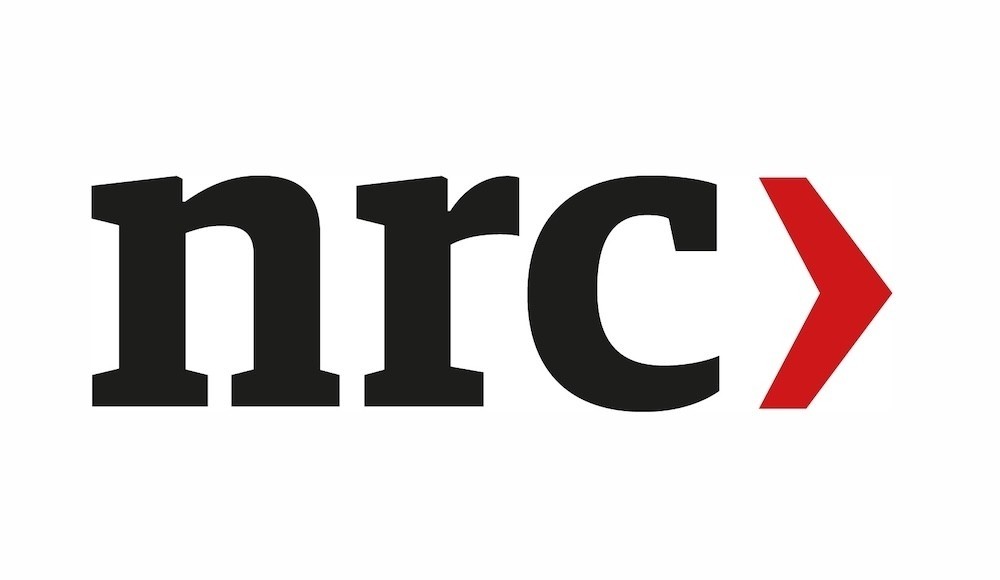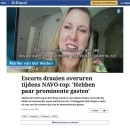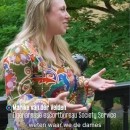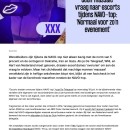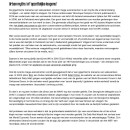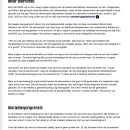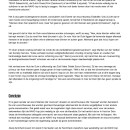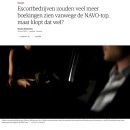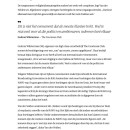NATO Summit 2025: coverage, responses and fact-checks
Around the NATO Summit in June 2025, Society Service was featured in several media outlets. On 18 June, De Telegraaf published a video in which three owners of high class escort services discussed the expected surge in demand, including Marike van der Velden on behalf of Society Service. Shortly after, another competitor made notable statements about multiple bookings in hotels hosting prominent guests. Those claims raised doubts and were examined by other media. On 25 June, a Pointer fact-check and an NRC analysis put the coverage into perspective. Our own experience leading up to the summit also differed from that competitor’s account. Hotels receiving prominent guests moved existing reservations and applied strict visitor protocols with prior registration and identification. In that light, stories about multiple visits in the most heavily secured hotels sounded unlikely.
De Telegraaf: Escorts working overtime during the NATO Summit: ‘We have a few prominent guests’
De Telegraaf investigated in a video report whether escort services were in fact busier around the NATO Summit. Three owners spoke about demand, booking formats, preferences and logistics. In a phone interview, Marike van der Velden shared experience from earlier high profile events and painted a realistic picture of peak periods. About a previous summit: “Yes, it was busy and yes, it was exciting.” The team had prepared with a separate workspace to handle paperwork and final briefings, which helps keep things calm and organised during peaks.
The report shows that popular bookings in this period are dinner dates and overnights. First dinner together, then back to the hotel room. Conversations about geopolitics only happen if a client wants that; often such topics are left aside. Preferences differ by origin. In the Netherlands, clients tend to prefer discreet and low key, while international guests more often appreciate explicitly feminine styling, such as higher heels. In practice, much revolves around planning and discretion. Meeting slightly outside the city centre offers more calm, also because the inner city is less accessible during the summit. “More luxurious hotels” can be suitable, depending on the situation and the rules in force.
The main point is scale. It is busier than usual, but not so busy that capacity is exhausted. The client base is broad, from everyday clients to well known individuals and everyone in between, “including politicians,” as Marike notes, without that group taking a larger share than usual. Where sensational stories spread quickly, reality is more stubborn and the work mainly requires preparation, screening and care. Longer bookings do occur, for example four to five hours at around €1500, with time for dinner and an unhurried ending.
Watch the De Telegraaf video here and visit the page here.
Pointer: No ‘mass’ demand for escorts during the NATO Summit: ‘Normal for such an event’
Pointer put the stories about “overtime” and “mass demand” into context. The fact-check opens by noting that several media and social channels amplified the idea of a salacious party at taxpayers’ expense, then tests what actually holds up. Pointer points to earlier cases where spectacular numbers and stories around mega events proved persistent, yet did not stand up to scrutiny. Researchers have described how moral panic and sensational claims blur critical thinking and allow extravagant figures to circulate.
On the ground in The Hague, Pointer saw signals that do not match an exceptional spike. Heavy security, restricted areas and strict access make working harder rather than easier. On Kinky.nl there were fewer ads than usual for the time of year. Inquiries within the sector suggested it could even be calmer in The Hague, and any increase is more in line with other large international events than with an extreme outlier.
The piece quotes several voices. While sensational accounts speak of bookings at the most heavily secured locations, sources point to the practical constraints of protocols and oversight. From within the sector comes a warning against tall tales. Marike van der Velden is quoted: “There are a few cowboy stories going around that distort reality.” Such stories can needlessly unsettle security services and feed a stubborn stigma around the sector. Pointer’s conclusion is down to earth: no evidence of a massive peak, no confirmation of specific hotel visits at the most secure venues, but the usual extra movement that comes with a large international event.
For Pointer’s social media channel, they interviewed Marike. The tone in the video is level-headed: “Yes, it’s busier now, but not so busy that we don’t know where to find the escorts.” Clients come “from all backgrounds, from the average person to a movie star and everything in between, including politicians,” but that last group is “not represented in higher percentages than usual.” The sector is “subject to stigma,” which fuels “juicy stories.” Asked whether this kind of busyness is typical for major events: “Yes, we saw that at the G8 summit in 2014 as well.” The suggestion that this is “paid for with taxpayers’ money” is rejected: “No, not at all. It’s a private matter.”
Read the Pointer fact-check here and watch the short video here.
NRC: Escort companies would see far more bookings because of the NATO Summit — but is that true?
NRC examined whether escort companies saw “many more bookings” due to the NATO Summit and compared that with actual findings. The core is clear: there is an increase, but not larger than during other big events. Marike van der Velden states this explicitly and adds that tightened security measures make the work more complex: road closures, stricter hotel rules and extra access controls take time and can make workload feel higher, without an exceptional peak.
NRC also addresses rumours about specific locations. The hotel hosting many guests only admitted accredited visitors during the summit, which makes spontaneous visits unlikely. Marike confirms this picture from practice: bookings were moved weeks in advance. She and other entrepreneurs emphasise that clients at such times are mainly people working around the event, not the prominent figures seen on the news. The result is a more realistic view of supply and demand, with attention to safety, rules and discretion.
Read the NRC article here.

